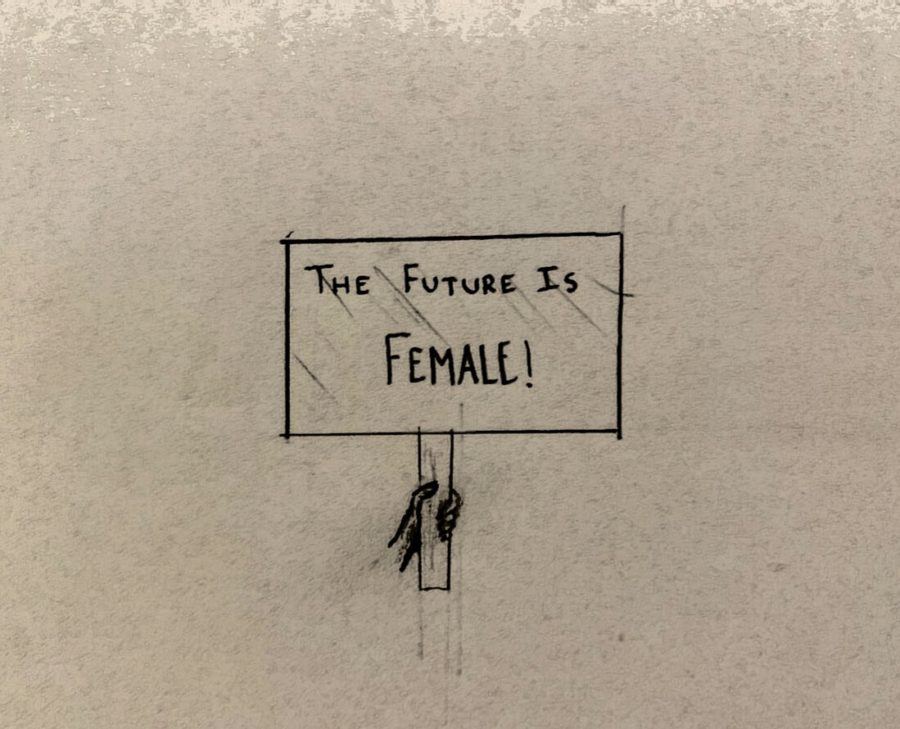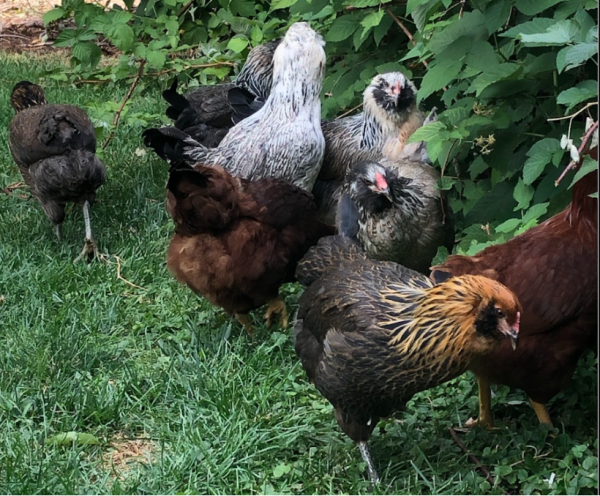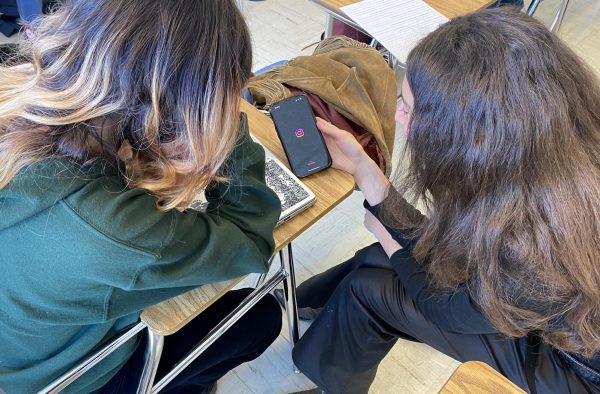Women: the “Forbidden Fruit”
Cartoon by Norrie Boyd
In this day and age, feminism, body positivity, and de-sexualization have become more frequently and aggressively advocated by third-wave feminists. Social media and feminists encourage women to appreciate their natural figure and take back control over their own decisions regarding clothing and sexuality. However, this causes blurred lines between self-love, body positivity, and self-exploitation. The human figure, and more specifically, the female figure, will never be seen in a neutral light unless we normalize them through self-presentation and by breaking society’s stereotypes. The answer lies in establishing women in a non-sexual light and showing society that their bodies and figure don’t have to be constantly seen in a sexual manner.
It must first be established that many believe sex work to be a needed and valuable career. It’s been argued that by legalizing the majority of sex work, people will no longer be put in danger by doing work through back-alleys. A study in the Netherlands showed that following the opening of zones in which street prostitution was legal, rape and assault cases went down thirty to forty percent in the first two years after opening. By legalizing prostitution, rape and assault cases go down as individuals that would commit those assaults now have a legal outlet. While it doesn’t solve the sexual assault crisis entirely, it certainly does make a noticeable impact.
If we, as a society, advocate through social to legalize sex work such as prostitution, it could open the gates to viewing a woman’s body as something that isn’t inherently sexual. The human figure is not something that is overtly sexual; it is society’s nuances and judgment that make it so. Sex work being shamed and oftentimes illegal means that society will continue to see sexuality and the stereotypical female figure as a constant eye-sore in day-to-day life, establishing sexuality as a continuous existence when it shouldn’t be. We see the majority of service jobs as simply offering something to be given or done as a convenience, so why can’t we treat sex work, another service job, the same way?
If we continue to treat women’s bodies like a “forbidden fruit,” only accessible behind closed doors and back-door dealings, then women will continue to be treated as something to be stolen rather than gifted. In prostitution, the service is legally consented to by all involved parties, making it neutral ground. By legalizing these jobs and removing the negative stigma from legal sex work, we break the cycle of defining womens’ bodies as something meant to be hidden.
Take revenge porn; revealing content that it spread with the intent to defame those involved. Women are frequently blamed while also being the victim, as shown by The Guardian. Is the female body really so scandalous that they are shamed and may even resign from their job, like Katie Hill, when their pictures get shared?
Currently, the female figure is viewed upon as something to indulge in or even purchase illegally. Taking away the illegal aspect of sex work can eliminate this indulgence factor, making women a demographic that doesn’t have to be viewed in an exclusively “forbidden” manner. While prostitution is a sexual job, it also normalizes the act unbiasedly. Sexuality is a large part of human society, and service is a service; whether that means fixing a car or utilizing one’s own body.
To perceive women and acknowledge their authority over their bodily autonomy is to help eliminate simply seeing women as an object of sexual desire. As of right now, the culture around sex work and prostitution causes women to be ostracized further for what they wear and how they act. By normalizing the industry as another service career, sexuality can no longer be a trait simply meant to be indulged in and objectified.

Lex Dembo is beginning her third year as a part of The Owl’s staff as Editor in Chief. Last school year she was the editor of the arts and entertainment section, and this year she is excited to take on a higher leadership role. Lex is a passionate writer and is looking to pursue journalism outside of her high school career. Having been a part of the staff for so long, she hopes to make a lasting impact on the publication before she graduates. She is a member of the varsity swim team and Troupe 60 and enjoys being involved in extracurriculars where she gets together with her peers. In addition to being interested in school activities, she is also very passionate about politics and current events....






